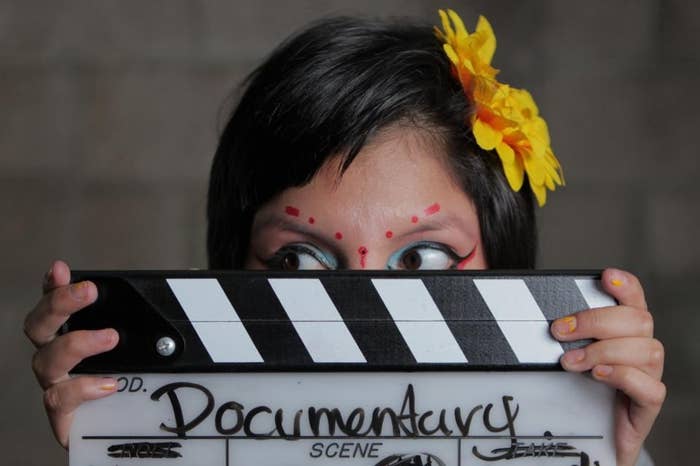
A lot of people saw this year's Best Picture nominees — six of the nine grossed over $100 million at the box office — but, as usual, fewer people saw the films nominated in categories like Best Short Film, Best Documentary Short, Best Documentary, Best Animated Short, even Best Foreign Film. Filmmakers nominated in some of the more obscure Oscars categories, though, said on the red carpet Sunday they were hopeful that the proliferation of video on demand services will be able to put their films in front of more viewers in future years.
Anything less than a full theatrical release may have been a disappointment in the past — but these days, filmmakers said, VOD is increasingly becoming the preferred means by which to release their work. Hard numbers are difficult to come by, but available figures show VOD on an indisputably upward trajectory. (Last year the Los Angeles Times estimated that simultaneous theatrical and VOD releases doubled between 2009 and 2011, and they were expected to climb an additional 30% in 2012.)
"We want people's eyes to get on our films, so anything that helps people's eyes get on our films, for us, it helps," said Sean Fine. Fine and his wife, Andrea Nix Fine, won the Academy Award for Best Short Documentary for their film, Inocente, initially released on MTV. "I think we have to adapt to this day and age."
Roman Coppola, nominated for Best Original Screenplay for Moonrise Kingdom, agreed. "In the past, video release was considered poor; now there are a lot of virtues to it," he said. Coppola released his indie film A Glimpse Inside the Mind of Charles Swan III, staring Charlie Sheen, via VOD at the beginning of this year.
"It doesn't seem to be received very well, critically at least, but a lot of people I've been in touch with are really enjoying it," Coppola said on Sunday. And that can often be the point of a VOD release: getting a film made and in front of audiences, studios and critics be damned.
Another advantage, according to Coppola: "The money doesn't get as diffused — it's more direct. The filmmakers or the financiers have a better chance of getting their money back."
"I think [filmmakers are] very interested," said Cynthia Wade, nominated with husband Robin Honan for their documentary short Mondays at Racine, about the possibilities of video on demand. The pair agreed that their primary goal was to get as many people to see their films as possible — and an added bonus, they said, was the fact that VOD allows them to see more of their colleagues' films as well.
"I was thrilled that I was able to buy and download Searching for Sugar Man," Wade said. The film took home the award for Best Feature Documentary; two of the other nominees, Five Broken Cameras and Invisible War, were both available streaming on Netflix, Honan noted.
Will more VOD releases mean better access to Oscar-caliber films in future years? Hopefully — but if it is, another side effect might be Oscar pools getting more competitive too.
"The bottom line is, you just want to get your movie in front of people," Coppola said. "It's fantastic to have it seen on a wonderful big screen, but however they choose to see it is fine with me."
